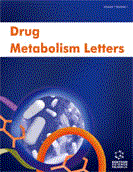Abstract
Cerebral malaria (CM) is the most severe complication of Plasmodium falciparum malaria. The aim of this study was to investigate the influence of CM on the cerebral uptake of mefloquine (MQ), in an experimental model of mice infected with Plasmodium berghei ANKA (PbA). Drug diffusion in brain is closely related to efflux pumps such as P-glycoprotein (P-gp/ABCB1/MDR1) and Breast Cancer Resistant Protein (BCRP/ABCG2), two major components of the blood-brain barrier (BBB) which can be modified by inflammation and/or infection. After a single IP dose, MQ concentrations were measured by liquid chromatography in blood and brains of mice infected with Plasmodium berghei ANKA and compared with that of non-infected mice. Our results show that MQ brain concentrations were decreased in CM mice versus healthy mice (0.77 versus 1.31 for brain/plasma concentrations). Although MQ is transported out of endothelial cells by P-glycoprotein, this result cannot be related to this transporter as we have previously shown that CM does not alter P-gp function (personal data). CM induces a reduction of MQ brain transport and, therefore, an increase of central toxicity due to MQ should not be expected during CM.
Keywords: Mefloquine, cerebral malaria, blood brain barrier, efflux, P glycoprotein, transporters
 30
30














